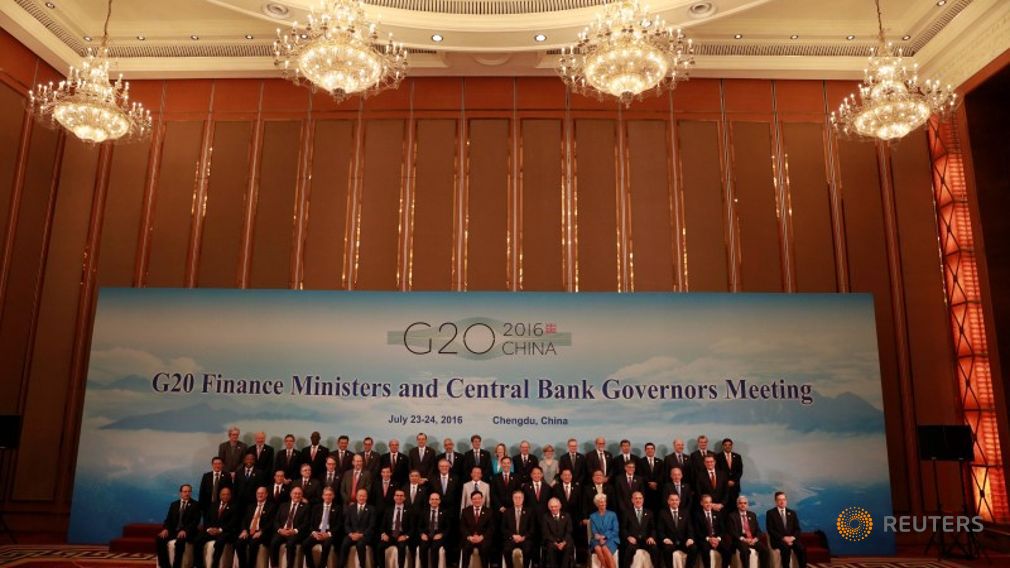Cairo- Finance ministers, central banks governors, and financial officials have warned during the final meeting of G20 from dangers after Brexit and its role in increasing threats against the global economy. However, the ministers and governors who gathered in Chengdu, China tried to address a calming message.
A communique issued by the G20 ministers at the end of the two-day meeting said Brexit, which dominated discussions, had added to uncertainty in global economy where growth was “weaker than desirable”. It added that members, however, were “well positioned to proactively address the potential economic and financial consequences”.
The International Monetary Fund (IMF) has called some countries, particularly Germany and USA to increase their public expenditure, which was previously opposed by Berlin. The G20 also called in its final communique to use all the available tools to recover the economic condition and enhance spending on infrastructure.
Pierre Moscovici, European commissioner for Economic and Financial Affairs said that Turkey wanted the final minute of the meeting to support its government following the unsuccessful coup that took place in the country, while the G20 meeting preferred not to discuss this issue.
Structural Problems
The statement has discussed concerns from structural problems like the exaggerated expansion in the steel industry and other sectors in line with a weak economic recovery and a low demand in the market, which was negatively reflected on the commerce and people who work in it.
It is worth noting that the exaggerated Chinese production in many sectors including the steel industry represents a source of tension for the global economy. The German industry sector is also seeking to impose more procedures to combat dumping based on selling exports supported with lower price rates than those in the market, and to force China on reducing its production that causes tension in the European markets.
At the conclusion of the meeting, Christine Lagarde, managing director of the International Monetary Fund (IMF) issued a statement in which she said that structural reforms are particularly critical, as recent IMF work shows that well-designed structural reforms can lift both short- and long-term growth and make it more inclusive. Further trade liberalization is also crucial to bolster productivity and global growth, while taking steps to ensure the gains from trade are shared widely.
In a joint statement at the end of the meeting, G20 members said they will combat all kind of trade protectionism and that they will ensure to deliberately study any movement related to structural policies and macro-economy.
They also asserted that constant vicissitudes of currency rate exchange will negatively affect stability and further stressed on their commitments in this matter. The G20 members also pledged to make all efforts to combat any possible Post-Brexit repercussions.
During the summit, leaders of the worlds’ most powerful economies have renewed their promise to support the global growth and to promote coordination in order to face the obscurity that controls the scene following the British decision to leave the European Union and to increase procedures of customs protection.
